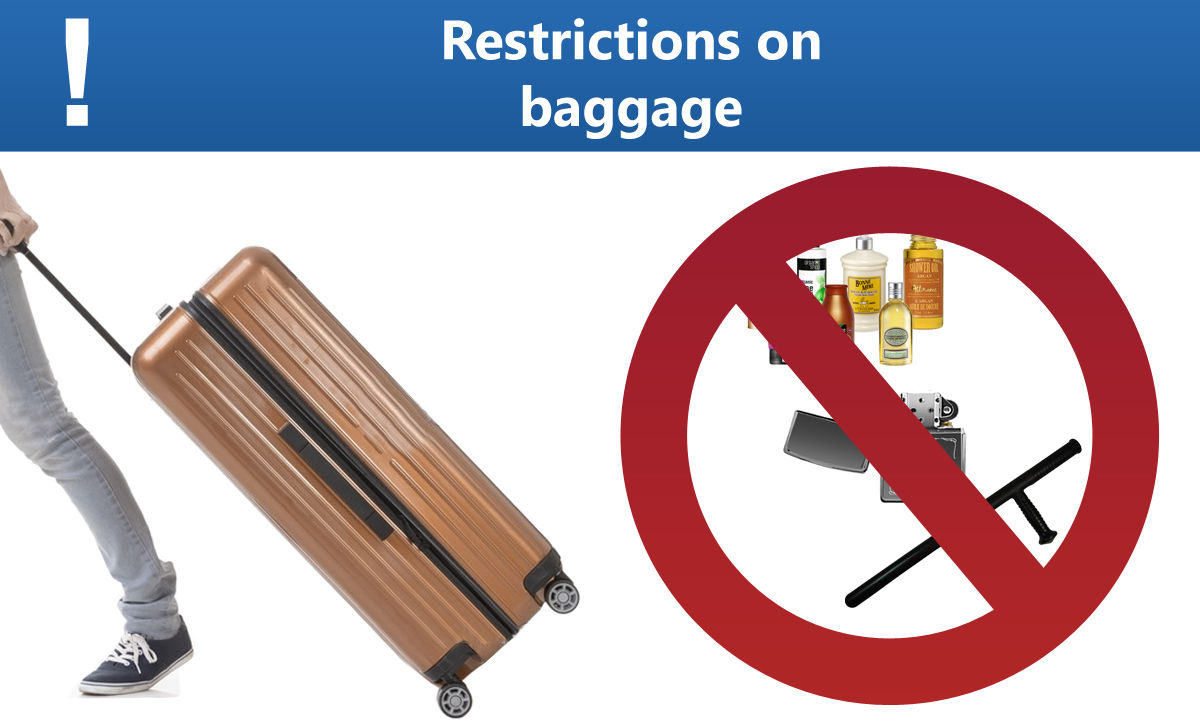For carriage as both registered and unregistered baggage the following are accepted:
-
Objects and substances that may be hazardous to aircraft, passengers on board the aircraft owned by airline or passengers;
-
Objects, weight and size of which significantly exceed the established norms of overall airline regulations for baggage;
-
Items the carriage of which is prohibited by the laws and regulations of the State from the territory, through or into which the flight is operated.

Flight documents, medical records, x-rays, negatives, especially valuable and fragile items, as well as money, credit cards, securities and documents, precious metals, stones and pearls and their products, the passengers are obliged to carry with themselves, without checking-in as a baggage.
Carrier is not liable for the safety of these items, if they are transported in checked baggage, regardless of whether the baggage accepted for carriage with a declared or not declared value.
The maximum allowable dimensions of hand luggage must not exceed 56 cm (22 inches) x 45 cm (18 inches) x 25 cm (10 inches), and the maximum size of each piece of hand luggage on the sum of the three dimensions - 115 cm. (45 inches). These take into account the size of the wheels, handles and side pockets of the baggage that carried as hand luggage.
If hand luggage consists of more than 1 bag (piece), all the luggage pieces must be considered in acceptation for carriage as a whole piece and total combined size of these pieces in 3 dimensions must not exceed 115 cm.
For safety reasons, the following dangerous objects and substances can not be accepted for carriage as a checked baggage:
- Firearms, pistols and military items - any subject or similarity of the object from which it is possible to release the bullet, or that can cause bodily injury;
- Piercing / edged weapons and sharp objects - any pointed or sharp object, which can cause bodily harm.
- Items with a blunt end - any object with a blunt end, which can cause personal injury;
- Explosives and flammable substances - any explosive or flammable substances that pose a threat to the health of passengers and crew or the security / safety of flight or property;
- Chemical and toxic substances - any chemical and toxic substance that poses a threat to the health of passengers and crew or the security / safety of flight or property;
Different types of batons (hard and flexible), for example, short, night and
 ENG
ENG  РУС
РУС
 O'Z
O'Z
